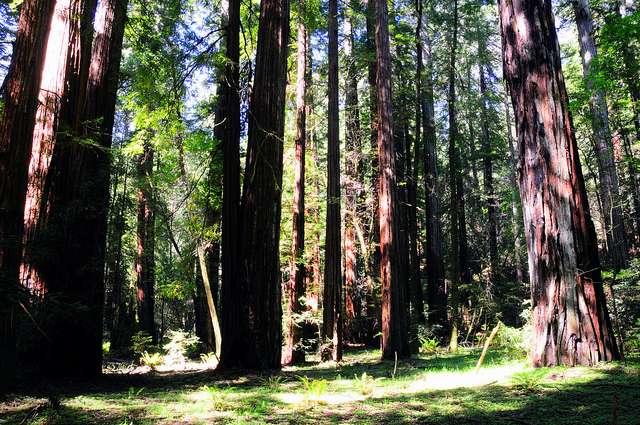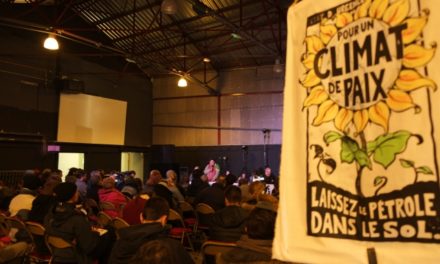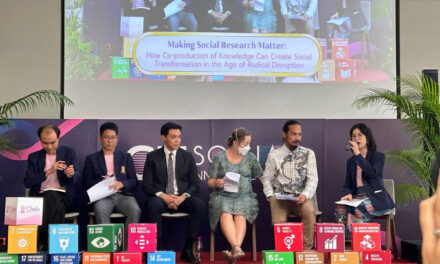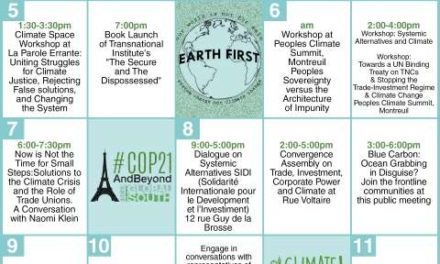Since California signed a memorandum of understanding in 2010 with Chiapas, Mexico and Acre, Brazil, the state Air Resources Board has been working to forge an agreement to allow California industries, under the Global Warming Solutions Act (AB 32), to offset their pollution by purchasing Reducing Emissions from Deforestation and Degradation credits that supposedly promote rainforest conservation in those areas.
A consulting group to the ARB recently released recommendations for the program and is accepting public comments through May 7. The environmental groups’ letter to Gov. Brown and the ARB — on the heels of letters of protests from Indigenous groups in Acre and Chiapas — points out deep flaws with the proposal:
[The] proposal is not only unlikely to deliver real, additional and permanent emission reductions, but it would also prevent Californians from getting the benefits of AB 32 at home. By allowing enterprises to buy international forest offsets, the amount of industrial emissions within the state would be greater than otherwise allowed by law, exposing people here in California to greater health and environmental risks, and preventing progressive Californian companies from benefitting from new technologies and innovations.
“REDD looks like a forest protection program,” said Jeff Conant, international forests campaigner with Friends of the Earth U.S., “but it’s not. It’s a carbon offset scheme. It fails to address the real causes of both deforestation and the climate crisis.”
“We need to reduce both deforestation and industrial emissions,” said Roman Czebiniak, senior climate and forest policy analyst at Greenpeace International. “Allowing major industries to merely replace one with the other not only puts the climate at great risk but also exposes Californians to greater pollution here at home.”
Europe’s emissions trading system, the largest carbon market in the world — itself beset by scandals and failure to reduce emissions in Europe — does not accept REDD credits. The EU says reductions in carbon emissions from forest preservation are impossible to verify accurately, that preserving one forest in one place may only drive deforestation to another area, and that industrial pollution remains in the atmosphere for centuries while forests are more vulnerable to short-term changes.
Tropical forests have unique social, economic and cultural significance to those who live in and depend on them for their livelihoods. But REDD projects like the one California is considering raise serious concerns about violations of the rights of forest dwellers.
“Forest carbon projects are causing grave human rights abuses, including evictions, land grabs, jailing, persecution of activists and violations of the United Nations Declaration on the Rights of Indigenous Peoples,” said Alberto Saldamando, a spokesman for the Indigenous Environmental Network. “California should not repeat its mistakes of the past with regard to indigenous peoples, in order to let polluters continue to pollute.”
Organizations in Acre and Chiapas who sent letters to California policymakers last week denounced the proposed program as “neocolonial” and “incoherent.” Objections have also been sent by Friends of the Earth Latin America and Caribbean and Oilwatch International urging that “common sense requires that we end fossil fuel addiction, not let corporations continue to profit while setting the planet ablaze.”
Environmental justice advocates also pointed out that communities in the shadow of polluting industries, like Chevron’s refinery in Richmond and Shell’s in Martinez, see REDD as a failure to address their concerns as well.
“We have struggled to ensure that ARB addresses the needs of low-income communities and communities of color in AB 32 implementation,” said Strela Cervas, coordinator of the California Environmental Justice Alliance. “But they have continued to pass harmful and ineffective offset programs that only benefit big polluters. ARB has shown little concern for communities of color here at home — how can we expect them to ensure a California REDD program will protect the rights of communities abroad?”
“To really tackle tropical deforestation at its root,” the letter recommends, “California policymakers should consider examining how the state’s existing policies…may enable rainforest destruction through contributing to demand for petroleum, timber, soy, paper, palm oil, and other commodities.”
#
Friends of the Earth is the U.S. voice of the world’s largest grassroots environmental network, with member groups in 77 countries. Since 1969, Friends of the Earth has fought to create a more healthy, just world.
Source: commondreams.org










